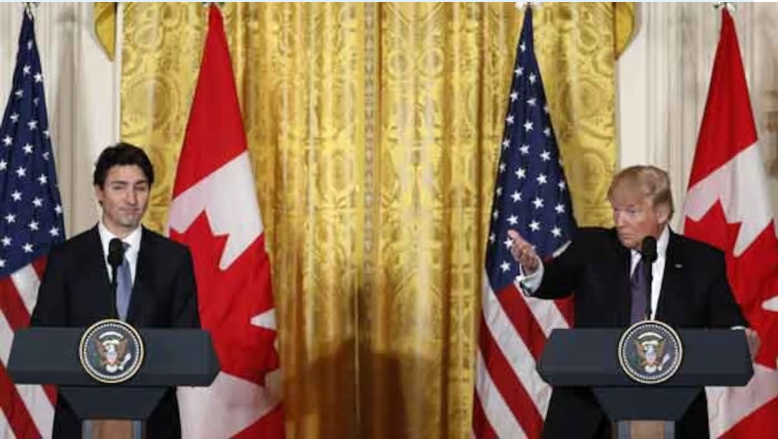 Former U.S. President Donald Trump’s recent proposal to implement new tariffs on imports has raised concerns among trade experts, especially regarding its potential impact on Canada-U.S. economic relations. The proposal, which forms part of his broader economic platform for a potential return to the White House, has sparked debates over its implications for bilateral trade.
Former U.S. President Donald Trump’s recent proposal to implement new tariffs on imports has raised concerns among trade experts, especially regarding its potential impact on Canada-U.S. economic relations. The proposal, which forms part of his broader economic platform for a potential return to the White House, has sparked debates over its implications for bilateral trade.
Experts note that Canada is the United States’ largest trading partner, with the two countries exchanging billions of dollars in goods and services annually. Trump’s previous tenure saw the imposition of tariffs on Canadian steel and aluminum, which triggered retaliatory measures and heightened trade tensions. Although those disputes were eventually resolved, the new proposal has revived fears of a repeat scenario.
The proposed tariffs are aimed at boosting domestic manufacturing by imposing higher duties on imported goods. While the move is intended to support American industries, experts argue that it could disrupt the integrated supply chains that form the backbone of North American trade. Industries such as automotive, aerospace, and agriculture, which rely heavily on cross-border collaboration, could face significant challenges if tariffs are enacted.
A Canadian trade analyst expressed concern over the potential economic fallout. They highlighted that previous tariffs led to job losses in both countries and damaged long-standing business relationships. The analyst emphasized that any new barriers would not only hurt Canadian exporters but also increase costs for American consumers and manufacturers.
Canadian officials have yet to formally respond to the proposal, but insiders suggest that they are closely monitoring the situation. Ottawa is expected to advocate for the preservation of free and fair trade, emphasizing the mutual benefits of the Canada-U.S. partnership.
Observers note that Trump’s tariff proposal could also affect ongoing discussions around modernizing the Canada-U.S.-Mexico Agreement, which replaced NAFTA in 2020. The agreement has been credited with fostering stability in North American trade, and new tariffs could complicate efforts to further streamline trade policies.
Trade experts are calling for a measured approach, urging leaders on both sides of the border to prioritize collaboration over conflict. They argue that the economic interdependence of Canada and the United States makes it imperative to find solutions that avoid unnecessary disruptions.
As the 2024 U.S. presidential election approaches, Canada will likely remain attentive to policy developments that could influence its economic ties with its southern neighbor. For now, the specter of renewed trade tensions serves as a reminder of the challenges and complexities inherent in maintaining one of the world’s most significant trading relationships.

